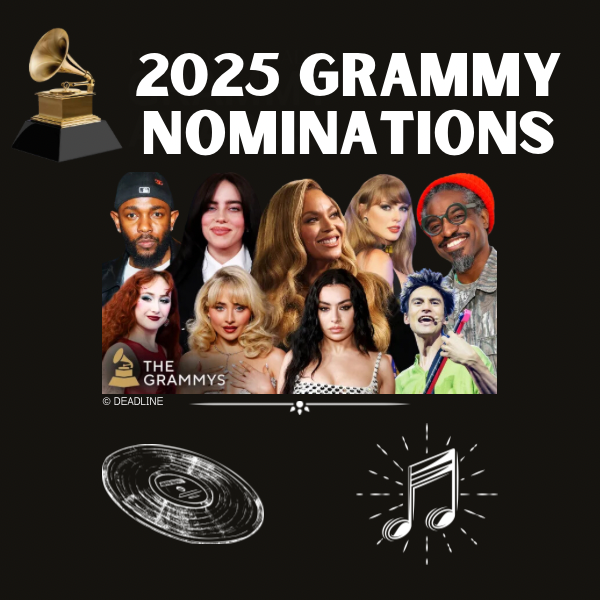via GIPHY
The Circle, the video division of Georgia Southern Student Media, made this video.
Marvel’s newest film, “Black Panther” was expected to be a success when it hit theaters-and indeed, it is holding its weight.
The film has so far broken a flurry of box office records pertaining to opening-weekend ticket sales (both traditional sales and with services like Fandango) and its success compared to the other Marvel Cinematic Universe (MCU) movies.
Some of the records, just to name a few, are biggest February opening weekend, besting “Deadpool” (which was seen as addressing an unreached audience in its own way), biggest solo superhero debut and largest-grossing American movie led by black director Ryan Coogler.
This film has been successful in part because milestones it accomplished in American film history- having a majority-black cast, black main protagonist and black screenwriter and director, and more accurately depicting African culture as a whole.
It is plain from the bounty of African imagery, such as clothes, dancing, roles for men and women, that depicting African culture more accurately was a priority for the movie.
A complex plot and characters
via GIPHY
Fueled by that, the movie’s characters entwined with the plot drove its success home. The film starts off after T’Challa, played by Chadwick Boseman, became the Black Panther in the wake of his father’s death in “Captain America: Civil War”. T’Challa is crowned as king a week after his father’s death.
With the mood at the beginning of the movie, you sense the inevitable unfinished business that will culminate in the rest of the story. This unfinished business is revealed through the character of Erik Killmonger, played by Michael B. Jordan.
The movie’s beginning establishes the connection between Killmonger’s father, N’Jobu, played by Sterling K. Brown, and T’Challa’s father, played by John Kani, letting us viewers know that the villain for this storyline is not a stranger-he is intimately familiar with the protagonist and has some serious qualms with everything T’Challa represents to him.
Thus, before the film’s plot has really accelerated, Killmonger joins antagonists like Loki, Bucky and Hela as “evil from the inside” or “keep your friends close and your enemies closer”.
Killmonger viewed T’Challa as a scapegoat for all the Wakandan policy with which he did not agree, and also as a proxy to release rage, and vengeance, since T’Challa’s father had died by this time.
Killmonger also comes across as an understandable villian-it is understandable to be angry about the suffering of others whom you see as similar to yourself. I thought it was interesting how his personal vendettas seemed to morph into wanting to kill all authority with whom he did not agree about how to help oppressed people.
That way of thinking seems to mirror some of the Civil Rights-era thought that helping oppressed black people would primarily be possible through revolution- fodder than one can consider long after the movie ends.
However, if Killmonger was the great villain and T’Challa was just another lacking protagonist, then the movie’s grip would not have any teeth.
T’Challa has his own evolution, similar to Captain America, where he goes from being the strong, idealistic hero to the hero who becomes vulnerable and balances his ideals with the harsh realities of the world. It just took a challenging villain to force T’Challa to adapt.
Allusions and deeper statements
via GIPHY
Another successful plot point in the movie has to do with Wakanda. The country is used as a paradigm of the country that wants to keep to itself isolated, in spite of a growing world out there with problems that will inevitably disrupt its status quo.
This plot device, in particular, points back to related conversations that have happened in the United States. Should we help foreign countries with financial or material aid, and to what extent?
The battle around aid would be incomplete without a key resource, vibranium. This is yet another allusion to in-real-life events-think battles over oil and actual precious metals, like gold and silver.
Whoever has the vibranium has power. Andy Serkis’ character, Klaw, certainly understood this, as he convened with Ultron in Avengers: Age of Ultron. I think this plot device alone helps ground the Avengers in a world where governments exist and have power.
There is no way the American government will ignore vibranium, and I believe the first ending scene of “Black Panther” leaves the door open for that conflict to happen in a “Black Panther 2” movie.
One of the inspiring traits in “Black Panther” was how the Wakandans persisted in seeing themselves. They saw their home as culturally and more tangibly rich, despite what outsiders saw due to the cloaking magic. Characters like Okoye and Nakia treasured those beliefs, and embodied the point that if you love your country, no matter how messed up it seems to be, then you will fight for it.
Where the story will continue from here
via GIPHY
If you have seen or heard about the “Avengers: Infinity War” trailer, then you know that the Avengers and many more Marvel superheroes will inevitably meet up with Thanos, the once-father figure of Gamora from “Guardians of the Galaxy”.
In order to fight such a foe, these heroes will have to work together, which they have been doing more and more with each successive installment about an Avenger (think “Captain America: Civil War” and “Thor: Ragnarok”).
Also, Marvel tradition dictates at least one easter egg scene after each film. The scene in “Black Panther” revealed that Shuri, played by Leticia Wright, has been helping “Bucky” Barnes, played by Sebastian Stan, recover from his injuries in “Captain America: Civil War”.
This scene further fuels the desire to see more of the Marvel characters team up. T’Challa seemed like a reluctant member of Captain America’s group in “Civil War”, but his assistance to both Barnes and Captain America signals a change in that attitude.
It will be interesting, then, to see how T’Challa acts in the group as the king of an entire country. For when the battle for humanity commences, it will not be a battle solely for Wakanda over vibranium, but for the world over the infinity stones.




